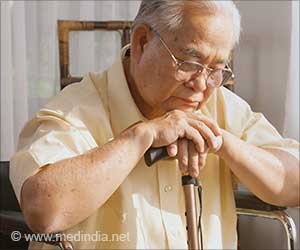Mild concussions, even in youth, can have long-term effects on brain health and may increase the risk of dementia later in life

Dementia - World Health Organization (WHO)
Go to source).
What are Concussions?
Concussions are a type of traumatic brain injury (TBI) caused by a blow or jolt to the head, which disrupts normal brain function. They can result from falls, sports injuries, car accidents, or any other impact that causes the brain to move rapidly back and forth within the skull. Symptoms of concussions can vary widely, including headaches, confusion, dizziness, nausea, memory loss, and sensitivity to light or noise. While concussions are usually temporary, repeated injuries or severe cases can lead to long-term health issues.‘Youth with #traumaticbraininjury are at higher risk for #memory problems & #dementia than those with #heartdisease, or #diabetes. #TBI #brainhealth’





The study, led by researchers at the University of Cambridge in the UK, aimed to learn more about the impact of concussions -- classified as traumatic brain injuries (TBIs) -- or other minor brain injuries on dementia. Previous research has suggested that some forms of dementia could be related to some types of brain injuries. In the paper, published in the journal JAMA Network Open, the team analysed MRI scans of 617 people aged 40 to 59.They also studied their medical histories, focusing most specifically on whether they had had brain injuries anytime during their life. About 36.1 percent of the participants reported having experienced at least one brain injury that was serious enough to have caused them a minor concussion.
Traumatic Brain Injury: New Insights
Traumatic Brain Injury (TBI) is a form of brain injury that occurs when an external force—such as a blow, bump, or jolt to the head—causes damage to the brain. TBIs can result from various incidents, including falls, vehicle accidents, sports injuries, or assaults. The severity of a TBI can range from mild (like a concussion) to severe, where there is an extended period of unconsciousness or amnesia after the injury. Symptoms of TBI can vary widely depending on the extent and location of the injury and may include headaches, dizziness, confusion, memory loss, difficulty concentrating, mood changes, and loss of coordination.Further, MRI scans showed that 1 in 6 of the participants had higher than normal instances of cerebral microbleeds and other symptoms of what is described as evidence of small vessel disease of the brain. People with at least one TBI were also more likely to smoke cigarettes, had more sleep problems, were more likely to have gait issues, and suffered from depression. The team noted that the more TBIs a person had, the more such problems became apparent. The team called for more research into the long-term impacts of TBIs, particularly regarding memory retention problems and possible associations with the development of dementia.
Reference:
- Dementia - World Health Organization (WHO) - (https://www.who.int/news-room/fact-sheets/detail/dementia)
Source-IANS















